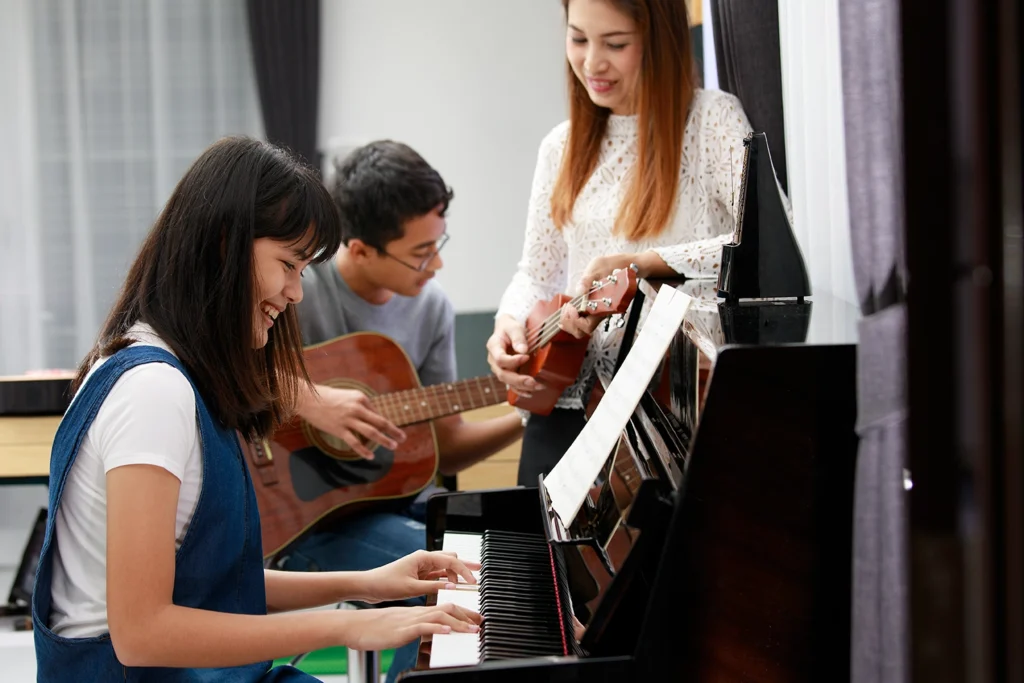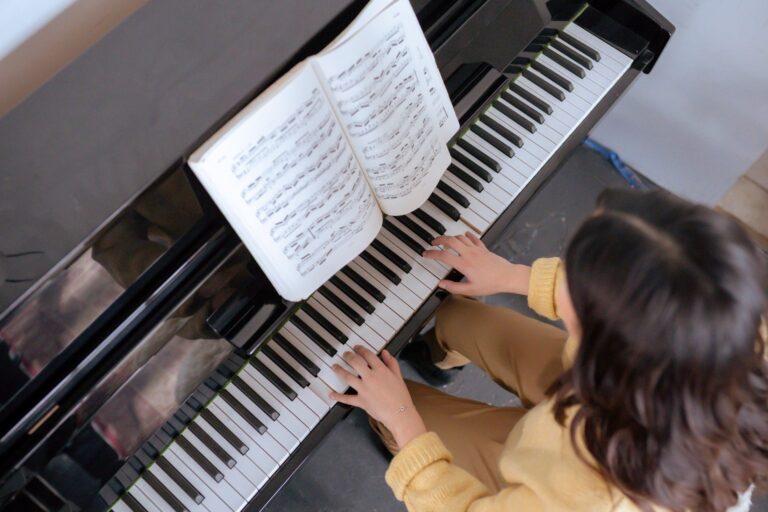It’s a common belief: the more you practice music, the better you’ll get. But while effort is certainly important, research in music psychology tells us that simply logging more hours doesn’t always lead to better results.
In fact, over-practicing can actually hurt progress, leading to fatigue, burnout, and even declining performance.
So if “more” isn’t always the answer, what is?
Quality Over Quantity: The Power of Focus
One of the biggest factors in effective practice is how we practice, not just how long. Research consistently shows that focused, goal-driven practice is far more effective than long, distracted sessions.
For example, at EduMuse, our teachers might suggest isolating a difficult phrase and working on it for just 10 minutes while concentration is still sharp.
With that kind of targeted effort, students can build both technical skill and emotional awareness.
This idea echoes the law of diminishing returns. The more you repeat something without focus, the less you gain from each repetition. In contrast, short, deliberate efforts often bring faster improvement and help maintain enthusiasm for learning.
Rest and Resilience: Listening to the Body and Mind
Just as important as focused effort is knowing when to stop. Without proper rest, students risk not just physical strain but mental exhaustion too.
At EduMuse, we pay attention when a student starts to look distracted or frustrated. That’s often a sign they need a break.
We help them tune in to these signals, developing a habit of stepping back, resting, and returning with fresh energy.
Practicing with Purpose: A Growth-Oriented Mindset
All of this ties into a bigger picture: deliberate practice, a concept developed by psychologist Anders Ericsson. This means setting clear goals, working through challenges thoughtfully, and staying mentally engaged.
Our teachers would rather a student practice just three short times with good quality than three hours of unfocused and undirected practice.
And underlying all this is mindset. Students who believe they can improve — those with a growth mindset — tend to approach practice with more motivation and patience.
That’s why our teachers regularly check in on students’ emotional states, encourage positive self-talk, and reinforce the idea that effort leads to growth.
In Conclusion
Practice is vital for any musician, but it’s not just about doing more.
With the right balance of focused effort, rest, and a healthy mindset, students can practice more efficiently and, just as importantly, enjoy the process.
At EduMuse, that’s what we aim for: not just better musicians, but more confident, resilient learners.
Add Your Heading Text Here



